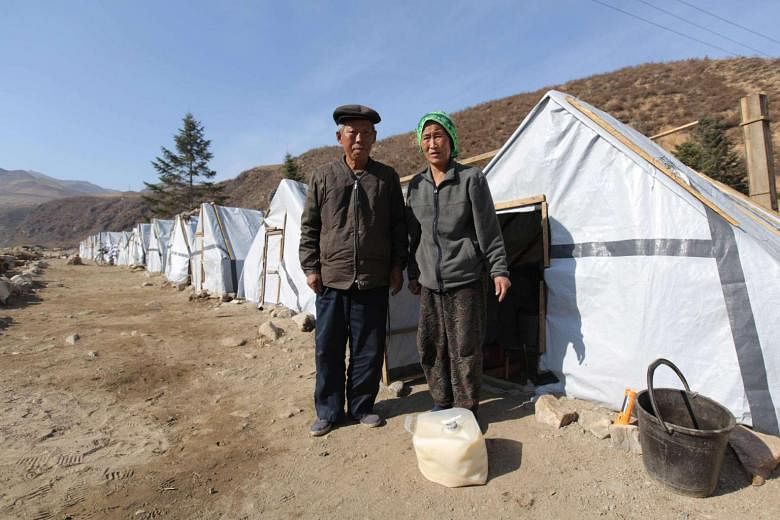BEIJING (AFP) - Political concerns over the North Korean regime are stopping vital relief aid from reaching the victims of a major flood there, the International Federation of Red Cross and Red Crescent Societies (IFRC) said on Saturday (Oct 29).
Nearly 70,000 people are estimated to have lost their homes in disastrous flooding in North Hamgyong province in August and September that claimed more than 130 lives.
Governments need "to put politics aside and recognise that this is a humanitarian tragedy", IFRC's communication manager for the Asia-Pacific Patrick Fuller told reporters in Beijing following a trip to the region, adding that it was "difficult" for many to separate the issue of sanctions from the need for aid.
Last month, the Red Cross began an emergency campaign for funds, but so far the response has been "disappointing", only meeting 25 per cent of its target, he said.
"It's not nearly enough to support the operation over the coming months."
While the North Korean government has had made progress building new housing for the flood's victims, many are still living in temporary shelters.
"Winter is going to be the main challenge," Mr Fuller said, showing footage of homeless families building fires from bits of kindling and fetching water from shallow streams.
As the season changes, temperatures are expected to dip as low as -15 deg C. "It's not a situation where people can continue to live under plastic sheeting," he said.
IFRC had intended to use the requested funds to supply basic items such as bedding, winter clothing and fuel to 7,000 families, Mr Fuller added.
But due to the shortfall he said they would not be able to provide all that.
The floods along the Tumen River, which partially marks the border with China and Russia, tore through villages, washing away buildings and leaving hundreds of thousands in urgent need of food and shelter.
Other aid agencies have also said that raising money for humanitarian assistance in North Korea has become an increasingly difficult task given the global condemnation of its nuclear weapons programme.
Some donors have questioned how the North can afford to develop and test nuclear weapons, but still need financial help to alleviate the suffering of flood victims.
The impoverished and isolated North is vulnerable to natural disasters, especially floods, due partly to deforestation and poor infrastructure.
At least 169 people were killed by a massive rainstorm in the summer of 2012.

